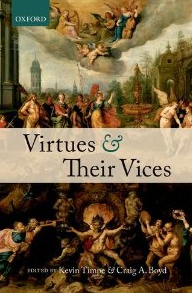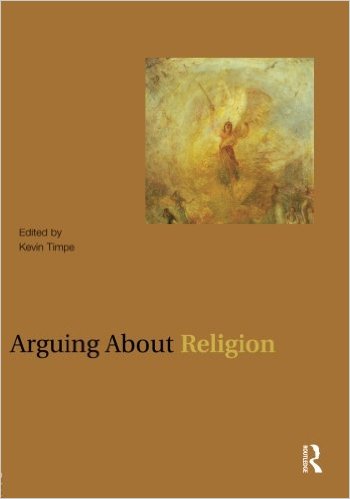
Disability and Inclusive Communities intends to help readers learn how to build communities that fully include people with disabilities. Often our social practices unintentionally exclude those with disabilities by making it difficult for them to fully participate in the community. These practices hurt those whom we exclude. But they are also bad for our communities as a whole. Our communities—from our churches to our schools to our workplaces—are worse off when we exclude those with disabilities. We miss out on the opportunity to learn from complex, complete human beings who experience life in different ways. We miss out on becoming the Body of Christ in all its fullness. But our communities become better places for everyone when we pursue policies and practices of inclusion. Good intentions aren’t enough. We need good social practices to make our communities more inclusive. For when we do that, all of us are better off.
“This mighty little book is as deeply personal as it is sweeping in scope. Speaking with clarity and care from his personal experience as the parent of a child with a disability, Professor Timpe takes us on a guided tour of the terrain of disability rights, highlighting the progress that has been made and the work that still needs to be done if we are to build a world that values everyone. In a single sitting, Disability and Inclusive Communities could set someone on the path to the kind of ‘radical and deliberate reorientation of our communities’ that is being called for.”
— Leah Smith, MPA, Center for Disability Rights, Rochester, NY

Questions concerning free will are intertwined with issues in almost every area of philosophy, from metaphysics to philosophy of mind to moral philosophy, and are also informed by work in different areas of science (principally physics, neuroscience and social psychology). Free will is also a perennial concern of serious thinkers in theology and in non-western traditions. Because free will can be approached from so many different perspectives and has implications for so many debates, a comprehensive survey needs to encompass an enormous range of approaches. This book is the first to draw together leading experts on every aspect of free will, from those who are central to the current philosophical debates, to non-western perspectives, to scientific contributions and to those who know the rich history of the subject.
Concerns both about the nature of free will and about the credibility of theistic belief and commitment have long preoccupied philosophers. In addition, there can be no denying that the history of philosophical inquiry into these two issues has been dynamic and, at least to some degree, integrated… read more

Virtues and Their Vices is the only extant contemporary, comprehensive treatment of specific virtues and, where applicable, their competing vices. Each of the essays, written exclusively for this volume, not only locates discussion of that virtue in its historical context, but also advances the discussion and debate concerning the understanding and role of the virtues. Each of the first four sections focuses on a particular, historically important class of virtues: the cardinal virtues, the capital vices (or ‘seven deadly sins’) and the corrective virtues, intellectual virtues, and the theological virtues. The final section discusses the role virtue theory and the virtues themselves play in a number of disciplines, ranging from theology and political theory to neurobiology and feminism. The treatment of the virtues in this present volume is sensitive to the historical heritage of the virtues, including their theological heritage, without paying undue attention to the historical and theological issues. Virtues and Their Vices engages contemporary philosophical scholarship as well as relevant scholarship from related disciplines throughout. It is a unique and compelling addition to the philosophical treatment of the virtues as well as their import in a wide spectrum of disciplines.
Free Will in Philosophical Theology takes the most recent philosophical work on free will and uses it to elucidate and explore theological doctrines involving free will. Rather than being a work of natural theology, it is a work in what has been called clarification—using philosophy to understand, develop, systematize, and explain theological claims without first raising the justification for holding the theological claims that one is working with. My primary aim is to show how a particular philosophical account of the nature of free will—an account known as source incompatibilism—can help us understand a range of theological doctrines.
“This is a splendid contribution to the literature on free will. Set in the borderlands between philosophy and theology, Timpe’s work shows how a substantial vision of free will can be integrated into a robust account of sin and grace. The concepts deployed are clear, the arguments articulated are felicitous, and the overall result is a book worthy of our closest attention.”
— Billy Abraham (SMU)

“Timpe’s Free Will: Sourcehood and Its Alternatives is a very fine book that is highly recommended for anyone interested in the contemporary debates about free will and moral responsibility. Timpe is remarkably well-versed in the literature, and the book makes many intriguing and illuminating contributions.”
— John Martin Fischer (University of California Riverside)
Much contemporary scholarship on free will focuses on whether it is compatible with causal determinism. According to compatibilists, it is possible for an agent to be determined in all her choices and actions and still be free. Incompatibilists, on the other hand, think that the existence of free will is incompatible with the truth of determinism. There are two dominant general conceptions of the nature of free will. According to the first of these, free will is primarily a function of being able to do otherwise than one in fact does. On this view, free will centrally depends upon alternative possibilities. The second approach focuses instead on issues of sourcehood, holding that free will is primarily a function of an agent being the source of her actions in a particular way.
“This book provides an excellent overview of key developments in the last thirty-five years of free will debates, but it is no mere history or summary…. This book is a valuable contribution to the current literature on free will; anyone interested in that topic would do well to read it.”
— C. P. Ragland (Saint Louis University)
Free Will demarcates these two different conceptions free will, explores the relationship between them, and examines how they relate to the debate between compatibilists and incompatibilists. It ultimately argues for a version of Source Incompatibilism.

Arguing about Religion (Routledge, 2009) brings together primary readings from over 40 of the world’s leading contemporary philosophers of religion. Covering a broad range of issues, the volume is divided into six parts: methodological issues in philosophy of religion, God’s nature and existence, evil and divine hiddenness, providence and interaction, the afterlife, and religion and contemporary life.
“This collection fits perfectly with the aim of Routledge’s ‘Arguing About…’ series: it brings together excellent essays on central issues in the philosophy of religion, but the topics and essays are fresher and perhaps a bit edgier than those in a ‘standard’ philosophy of religion anthology. The book is at the same time an accurate representation of the cutting edge of the field at this point and also a challenging, probing, and provocative collection. Highly recommended!”
— John Martin Fischer (University of California Riverside)

Metaphysics and God (Routledge, 2009) is a collection of 14 original contributions by leading scholars focusing on contemporary issues in the philosophy of religion. The essays engage and honor Eleonore Stump’s seminal contributions to the discipline.
“A worthy tribute to a scholar who has given so much to the field.”
— Travis Dumsday (European Journal of Philosophy of Religion)
“Eleonore Stump is one of the most penetrating, creative, humanly sensitive, and rigorous philosophers of religion on the current scene. She deserves the very best of honors for her labors; this collection of essays is fully worthy of her stature and work.”
— William Abraham (Notre Dame Philosophical Review)

